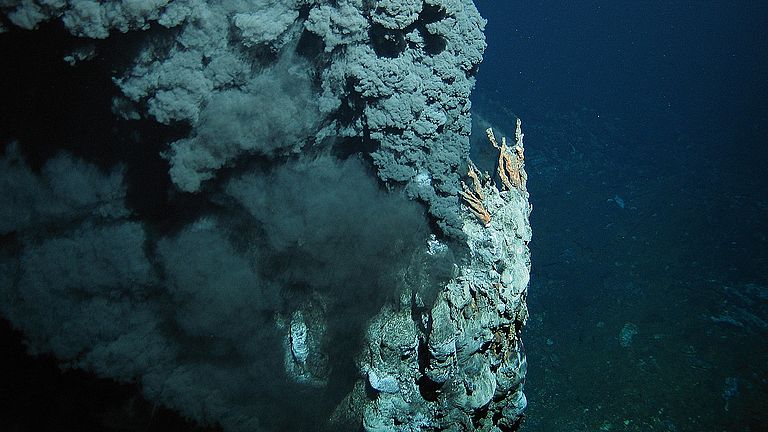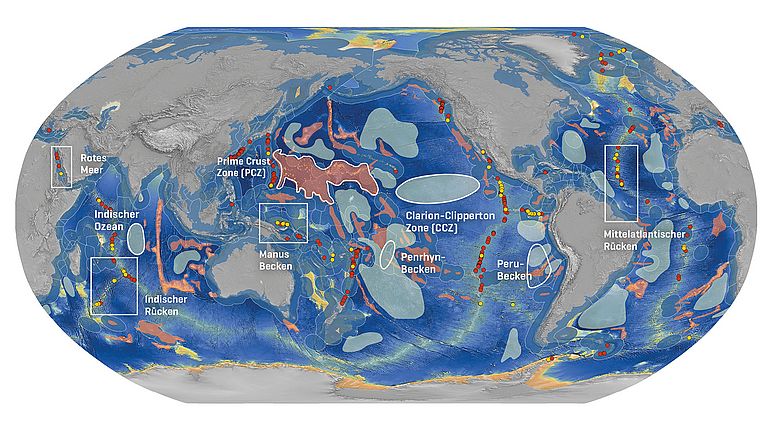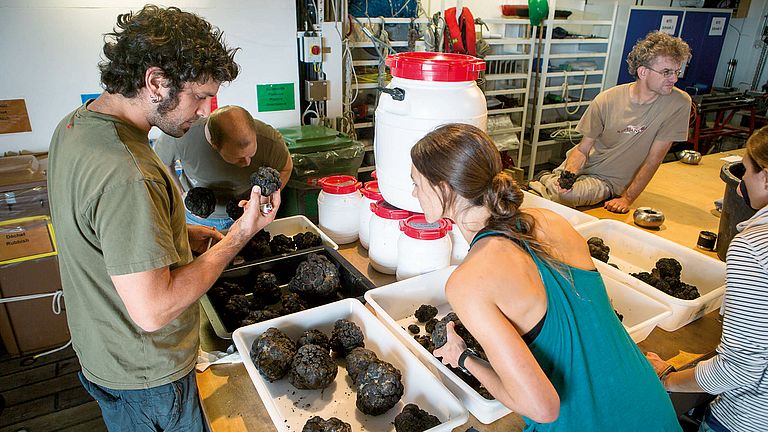Prof. Dr. Sylvia Sander
Deputy Speaker Topic 8
ssander(at)geomar.de
Topic 8: Georesources for the Energy Transition and a High-Tech Society
Global consumption of energy and raw materials is growing rapidly. More than 70 percent of the additional energy demand is still covered by oil, natural gas and coal, which leads to a continuous increase in CO2 emissions. Despite all the efforts being made with regard to the energy turnaround, Germany too is still importing around 60 percent of its energy and will remain heavily dependent on fossil fuels, at least for some time to come. However, a clean and consumer-oriented energy supply is urgently needed. At the same time, the accelerated use of natural resources is part of our high-tech future, which is needed not only for renewable energy but also in other economic sectors. Satisfying this growing demand cannot be solved by recycling alone and requires an intensive search for the resources that can be developed most sustainably.
In the topic "Georesources for the Energy Transition and a High-Tech Society" coordinated by the Helmholtz Centre Potsdam - German Research Centre for Geosciences (GFZ) in the fourth phase of the Helmholtz Association's programme-oriented funding, the focus is on creating a scientific basis for access to safe, clean energy and the raw materials needed for our infrastructure in the 21st century, enabling energy change and supporting a growing recycling economy. To this end, the topic will address two key challenges related to georesources for energy transition and a high-tech society: Where do we find the resources and how can we use them sustainably? GEOMAR, GFZ and the Helmholtz Centre for Environmental Research (UFZ) are working together in this topic. Research in this topic will be one of the first committed geoscientific initiatives worldwide to focus on raw materials at greater depths as a solution for our future energy and raw materials supply. The realisation of these solutions requires new concepts for the underground use and geological storage of waste from energy production, new techniques for the discovery of underground mineral resources on land and in the oceans, and new observation, experimental and simulation platforms for the development of new mining strategies.
The Georesources topic is divided into three sub-topics: Geoenergy, raw materials and integration of Geoenergy and Mineral Systems. GEOMAR deals with issues in the latter two areas. It investigates the physical, chemical and biological processes that are important for the energy and mineral systems of the oceans. The most important raw materials that will drive energy change are the economically important (strategic) metals copper and zinc, as well as raw materials for which there is an increased risk of supply (critical raw materials) such as the rare earth elements, lithium, tungsten and cobalt.
More about Topic 8 on the webpages of the Helmholtz Research Field Earth and Environment





